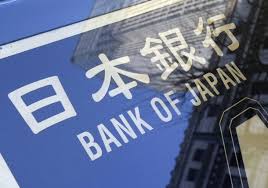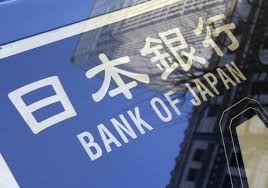
While regional stocks were mixed after Federal Reserve Chair Janet Yellen's upbeat comments, shedding some gains made following killings in Germany and Turkey the yen edged down on Tuesday after the Bank of Japan held policy steady.
While offering a more upbeat view of the economy than in its Nov. 1 assessment, the BOJ maintained its pledge to guide short-term rates at minus 0.1 percent and the 10-year government bond yield around zero percent.
The central bank signaled its conviction that a generally weak yen and a rebound in overseas demand will lift prospects for a solid recovery, stating that the economy continues to recover moderately as a trend.
After closing 0.7 percent lower on Monday, The U.S. dollar advanced 0.6 percent to 117.89 yen.
Since Donald Trump's surprise election victory, on his promises of increased fiscal stimulus, the greenback has risen 12 percent versus the yen.
After receiving more than the 270 Electoral College votes required to be elected, Trump formally won the U.S. presidency on Monday.
Earlier gains were shed by MSCI's broadest index of Asia-Pacific shares outside Japan .MIAPJ0000PUS to trade down 0.2 percent. Volumes were low in some markets ahead of year-end holidays.
Japan's Nikkei, flat before the BOJ decision, ended the day up 0.5 percent.
"There was no particular surprise from the policy meeting, but investors are happy that the economy's fundamentals are finally rising after the BOJ expressed an upbeat view of the economy," said Takuya Takahashi, a strategist at Daiwa Securities.
As Beijing's move to tighten supervision of shadow banking activities and persistent liquidity concerns restrained risk appetite, China's CSI 300 index slid 0.6 percent. Hong Kong stocks dropped 0.5 percent.
As optimism over Yellen's comments about the U.S. labor market offset some of the risk aversion following the deaths in Germany and Turkey, and a shooting attack in a mosque in Switzerland, Wall Street ended higher on Monday, albeit below the session's highs.
"Yellen painted a very positive picture in her commentary overnight," said James Woods, global investment strategist at Rivkin Securities in Sydney.
"The (Federal Open Market Committee) has done a fantastic job preparing the market for this second and subsequent hikes. Importantly they have continued to stress that the FOMC remains data dependent, only hiking when the underlying fundamentals of the economy support this."
After a truck plowed into a crowded Christmas market in central Berlin Monday evening, killing 12 people and injuring 48 others, markets were rattled.
Berlin police said on Twitter on Tuesday that a Polish man found dead in the truck was not controlling it and that investigators assume the truck was driven into the crowd intentionally in a suspected terrorist attack.
Extending its losses to trade 0.15 percent lower at $1.03855 on Tuesday was the euro which slid 0.5 percent to $1.0401 on Monday.
After the Russian ambassador to Turkey, Andrei Karlov, was shot and killed at an art gallery in Ankara, the capital, pressure also came on the euro.
After falling 0.7 percent on Monday, the Turkish lira recovered 0.3 percent to 3.5196 per dollar on Tuesday. The rouble was steady at 61.8926 per dollar.
In Switzerland, a man opened fire on people praying, injuring three after he stormed into a Zurich mosque on Monday evening.
and opened fire on people praying, injuring three, Swiss police said.
Holding steady at 1.068 per euro, following a 0.4 percent gain on Monday, the safe haven Swiss franc remained resilient.
(Source:www.reuters.com)
While offering a more upbeat view of the economy than in its Nov. 1 assessment, the BOJ maintained its pledge to guide short-term rates at minus 0.1 percent and the 10-year government bond yield around zero percent.
The central bank signaled its conviction that a generally weak yen and a rebound in overseas demand will lift prospects for a solid recovery, stating that the economy continues to recover moderately as a trend.
After closing 0.7 percent lower on Monday, The U.S. dollar advanced 0.6 percent to 117.89 yen.
Since Donald Trump's surprise election victory, on his promises of increased fiscal stimulus, the greenback has risen 12 percent versus the yen.
After receiving more than the 270 Electoral College votes required to be elected, Trump formally won the U.S. presidency on Monday.
Earlier gains were shed by MSCI's broadest index of Asia-Pacific shares outside Japan .MIAPJ0000PUS to trade down 0.2 percent. Volumes were low in some markets ahead of year-end holidays.
Japan's Nikkei, flat before the BOJ decision, ended the day up 0.5 percent.
"There was no particular surprise from the policy meeting, but investors are happy that the economy's fundamentals are finally rising after the BOJ expressed an upbeat view of the economy," said Takuya Takahashi, a strategist at Daiwa Securities.
As Beijing's move to tighten supervision of shadow banking activities and persistent liquidity concerns restrained risk appetite, China's CSI 300 index slid 0.6 percent. Hong Kong stocks dropped 0.5 percent.
As optimism over Yellen's comments about the U.S. labor market offset some of the risk aversion following the deaths in Germany and Turkey, and a shooting attack in a mosque in Switzerland, Wall Street ended higher on Monday, albeit below the session's highs.
"Yellen painted a very positive picture in her commentary overnight," said James Woods, global investment strategist at Rivkin Securities in Sydney.
"The (Federal Open Market Committee) has done a fantastic job preparing the market for this second and subsequent hikes. Importantly they have continued to stress that the FOMC remains data dependent, only hiking when the underlying fundamentals of the economy support this."
After a truck plowed into a crowded Christmas market in central Berlin Monday evening, killing 12 people and injuring 48 others, markets were rattled.
Berlin police said on Twitter on Tuesday that a Polish man found dead in the truck was not controlling it and that investigators assume the truck was driven into the crowd intentionally in a suspected terrorist attack.
Extending its losses to trade 0.15 percent lower at $1.03855 on Tuesday was the euro which slid 0.5 percent to $1.0401 on Monday.
After the Russian ambassador to Turkey, Andrei Karlov, was shot and killed at an art gallery in Ankara, the capital, pressure also came on the euro.
After falling 0.7 percent on Monday, the Turkish lira recovered 0.3 percent to 3.5196 per dollar on Tuesday. The rouble was steady at 61.8926 per dollar.
In Switzerland, a man opened fire on people praying, injuring three after he stormed into a Zurich mosque on Monday evening.
and opened fire on people praying, injuring three, Swiss police said.
Holding steady at 1.068 per euro, following a 0.4 percent gain on Monday, the safe haven Swiss franc remained resilient.
(Source:www.reuters.com)





